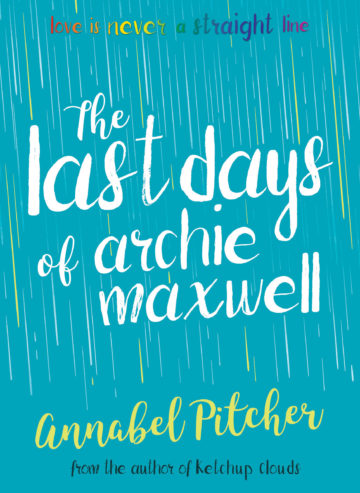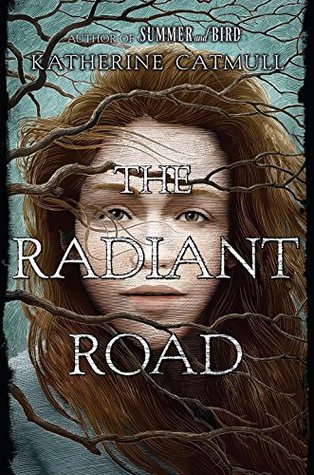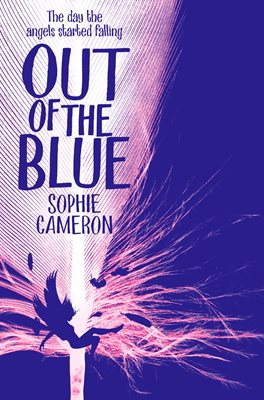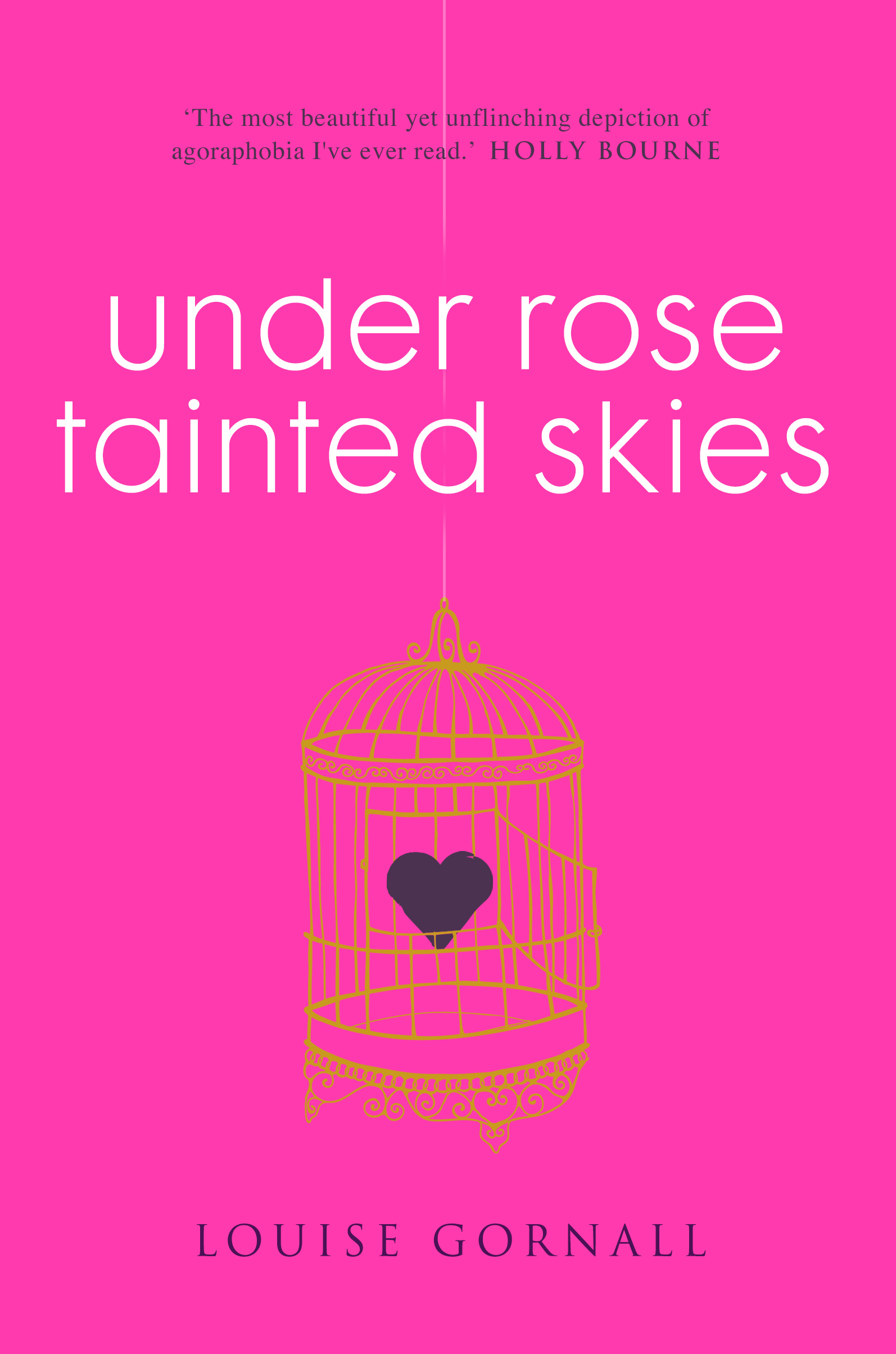This month’s Author Takeover comes from a Harry Potter superfan, author Annabel Pitcher. Her new teen novella, The Last Days of Archie Maxwell, explores the aftermath of secrets revealed. Published by dyslexia-friendly publisher Barrington Stoke, Archie’s story is a heartfelt and accessible story exploring the boundaries of love – particularly upon realizing a parental figure may not be all that they seem.
Secrets Aparecium!
When Albus Dumbledore died at the end of Half-Blood Prince, part of me died too.
I loved him from the moment he appeared in Privet Drive with his half-moon spectacles, his long silver beard tucked in his belt. For me, Dumbledore was the center of the Potter universe, the biggest reason (among many BIG reasons) to fall in love with the books.
Who can forget Dumbledore’s nonsensical welcome speech in Harry’s first year (“Nitwit! Blubber! Oddment! Tweak!”), or his moving encounter with Harry at the Mirror of Erised, where he revealed his “deepest, most desperate desire” was for “a pair of thick, woollen socks”? I loved his charm and his whimsy, the way he swapped his pointed wizard’s hat for a flowered bonnet at Christmas and delighted in sherbet lemons. But then there was also the immense power, shimmering just beneath the seemingly tranquil surface. I was mesmerized by the quiet danger of his threat to Dawlish when the Ministry of Magic attempted to arrest him in Order of the Phoenix. And don’t get me started on his bold escape from right underneath Fudge’s nose, a move so ingenious even Phineas Nigellus was forced to admit, “You know, Minister, I disagree with Dumbledore on many counts… but you cannot deny he’s got style.”
Yes, indeed. Albus Dumbledore had style by the cauldron-load, and unfailing grace, and exceptional manners even when confronting the Dursleys about Harry’s mistreatment at the start of Half-Blood Prince, or when faced with Voldemort himself, asking for a job at Hogwarts. He was a man fully in control of his words, his desires, and even his own death, as it turned out, though we didn’t know it at the time. We were simply left with the knowledge our hero had died and Fawkes would sing no more:
“…the phoenix had gone, had left Hogwarts for good, just as Dumbledore had left the school, had left the world… had left Harry.”
I wept at Dumbledore’s funeral, feeling something akin to real grief as Dumbledore’s body was encased in the cold, white tomb. That, I thought, was very much that. No more Dumbledore.
How wrong I was.
Deathly Hallows is ALL about Dumbledore, though not in the way any of us could have anticipated. I shared Harry’s horror as Rita Skeeter attempted to undermine everything we had come to love about him. No more could we see Dumbledore as an almost god-like figure, wise and compassionate, an open-minded friend to all. No. Our hero, our perfect hero, was flawed – a man who dabbled in the Dark Arts with his supposed enemy, Grindelwald:
“You cannot imagine how his ideas caught me, Harry, inflamed me. Muggles forced into subservience. We wizards triumphant. Grindelwald and I, the glorious young leaders of the revolution.”
What a shock it was to read these words, what a shift in perspective to see the twinkly-eyed headmaster of Hogwarts as a vain, power-hungry fool. Like Harry, I felt a different kind of grief this time – one mixed with anger and embarrassment at having been duped by a figure I had put on a pedestal. There was a greater sense of loss than when Dumbledore died; the loss of realizing I had never really known Dumbledore in the first place, that everything I thought about him was untrue.
I admit it. I was angry with J.K. Rowling for large parts of Deathly Hallows, sharing Harry’s rage and disappointment as more secrets from Dumbledore’s past were revealed:
“Some inner certainty had crashed down inside him […] He had trusted Dumbledore, believed him the embodiment of goodness and wisdom. All was ashes.”
It seemed so harsh to deal this killer blow in the final novel of the series. Harry had already lost so much. Did he have to lose his father-figure too? Well, yes, I came to realize, he did. J.K. Rowling was spot on. It was a harsh but necessary part of his (and our) journey to realize Dumbledore was human with a past that was less than perfect.
It’s the journey all of us must go on if we are to move from adolescence to adulthood. I wanted to explore this in my latest novel, The Last Days of Archie Maxwell, choosing to write about a 14-year-old boy whose father suddenly announces he’s gay and leaving home to live with a man:
“Walking to Scotland wouldn’t bring Dad back. Nothing would. He’d gone, or else he’d never really been here in the first place. Dad’s life had been a lie, which meant Archie was a lie too. That’s how Archie felt – an illusion, as if he wasn’t really here.”
When we realize our parents or idols are not necessarily what they seem, the landscape of our lives shifts a little bit. Our world, and our place within it, changes. When Harry and Dumbledore meet for the final time in my favorite chapter of all the books, “King’s Cross,” they do so in full knowledge of who Dumbledore really is. They meet as equals. They meet as men. Their relationship is no longer that of teacher-pupil, father-son, and there is sadness in that, but freedom too. Harry is able to forgive Dumbledore and love him for who he is; in doing so, he finally comes of age and is able to defeat Voldemort.
For Archie, it is not a dark wizard who poses the greatest threat, but the bullies at school and the conflict in his own mind. Archie loves Dad and wants him to be happy while hating him for destroying the only life he has ever known. It is perilous, this journey to adulthood, and it’s a journey that Archie, like all of us, must make alone.




